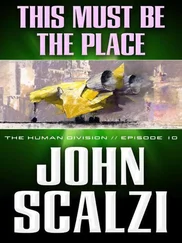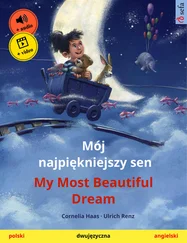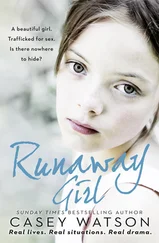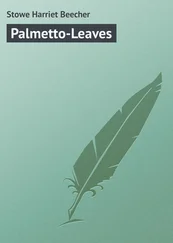After Dr. Joubert’s lecture, a picnic dinner was served on the newly mowed common, big as a football field, at Craftsbury Common. It proved to be a beautiful evening and night, a vast array of stars with a gibbous moon presiding. After dinner, a dozen or so conferees, a veritable parliament of owl aficionados, slathered in mosquito and blackfly repellent, set out for Great Bear Swamp. I stopped at the library of the Center for Northern Studies to take my temperature. For some reason, it had spiked to 101.5. But the later and cooler it got, the more the night air would be a balm, and anyway, I was eager to see owls.
On another day, breakfast at the local diner. A meandering drive on back roads. Working on a new novel during hours that the Marshfield Library is closed, with Emma napping in the portable car seat in the children’s books section. Crows in the conifers across the street. The phone rings in the library’s empty office. Many paragraphs typed on the Olivetti manual, a few kept. Everything I loved most happened most every day. With the exception that, when I got home, I found a note: Your brother called. Wouldn’t leave a return number. Will call later.
At dusk, the barred owl flew out the door of our three-story barn, glided over the near field, then disappeared toward the lower field and woods. I don’t know what was behind my impulse to name this owl, but I named her Gertrude. (In 2003, I named her successor in the barn Edna.) That evening, after watching the “Forever Free” episode of The Civil War, I could not sleep, so I went outside and walked to the two-lane, Route 14, where usually I’d go up the curving road in order to look back, my favorite view of the house. I stopped in front of Maurice and Kay Person’s red ramshackle house with its slumping porch. The lights were out. (Maurice once admonished me for leaving too many lights on in my house at night. “Electricity adds up,” he said.)
The night was very still. I heard a loud rustling of some sort — raccoons, I thought, but then there was a rush of air, then nothing. I swept my flashlight beam across the open garage adjacent to the house. There was Gertrude, sitting on a wooden shelf above Maurice’s black greatcoat on its nail; she had a vole dangling from her beak, a trickle of blood on its fur. I never realized before just how enormous a bird this was. I turned off the flashlight and immediately Gertrude whooshed past less than a foot from my head. It made me duck and throw my hands in front of my face. Off she went as if following the moon-illuminated dirt road up to our barn. I knew that this would never happen again. But part of what I loved most every day was thinking about this incident every time I walked or drove past Maurice’s house. Yet another place along this dirt road had become a mnemonic.
The next morning, another neighbor, Allison, dropped by to say that their grey-and-white cat, Pemberton by name, had gone missing. “She’s disappeared for days on end before,” Allison said. “But we’re asking people to keep a lookout. She’s got a collar with a nametag and phone number and everything.”
The Independence Day parade in Cabot. The Bread and Puppet troupe lead things off, with its founder, Peter Schumann, dressed as Uncle Sam on stilts, and timeless antiwar slogans in ten-foot-wide sheets held between poles by giant, doughy-headed puppets. Ironically, next in line came a dozen World War Two veterans. The breast pockets of their ill-fitting uniforms draped with medals, these elderly men walked slowly and waved to the crowd on either side of the street.
I’m eating a cherry-cheese danish at Rainbow Sweets Café, talking about books and Russian classical music with the proprietor, William Tecosky. Gabrielle Deitzel up on a ladder at the back of the farmhouse, taking down last year’s paper wasps’ nests to use for an art project. Standing in the waist-deep water of the creek at the bottom of the dirt road, fingerling trout brushing past your knees. Kestrels, hawks, crows, sparrows, robins, towhees. At night, fireflies hover above the garden along the stone wall. I look out over the field and see thousands more. The eyes of deer rising and falling in the near dark. The radio tuned to the BBC at midnight, but of course there’s the overseas time difference. Which means the European workday has already arrived at my house. Time travel by radio.
I thought back to the last day of well drilling: the giant rig with its insatiable thirst in the drizzling rain. The well diggers, on lunch break, had gone to the diner in Hardwick, a depressed little town but with a lovely bookstore and a café. I put on my raincoat and went out and measured the old well by dropping a flat stone on the end of a thread, then measuring the thread. In about an hour the diggers returned and bivouacked under a tarpaulin. The noise of the equipment was muffled by the rain. Inside on the kitchen table, Jane had left a note: Handel’s “Water Music” on VPR tonight. I could almost laugh. Rain on the roof in a soporific cadence. I wanted to take a yearlong nap.
The telephone rings.
“It’s mail fraud and tax evasion.”
“You’ve been busy.”
“What they call white-collar crimes.”
“Will it be Terre Haute prison again if—?”
“ If what? If you don’t take me into Canada if. That’s the only if you should be thinking about.”
“I have to say no. I’ll drive you to a border crossing. It’s on a back road. But I won’t take you over. Anyone asks, I can say I didn’t know you were, um, under legal duress.”
“Since you were a kid, you thought if you used words cleverly, people would think you’re clever.”
“I don’t think anything of the sort.”
Then, out of nowhere, he said, “I read fifteen poems by Robert Frost last week. Doesn’t sound like me, does it? Fifteen. And after fifteen of them, I thought, Robert Frost is loyal to things. He’s loyal to the truth. And I further thought, If Robert Frost had a brother in need, he’d fix up a horse and sleigh and take that brother through hellfire and ice storms into Canada. He lived in Vermont some of the time, in case you didn’t know.”
“What would you do in Canada?”
“Not live in the U.S.”
“Meaning they won’t extradite you for the kind of thing you screwed up with.”
“So my attorney tells me.”
“You have an attorney?”
“I call him that. He studied law in Terre Haute, the prison library. He’s more a legal adviser, I suppose. I advise him about certain things in return.”
“I bet. Well, why not advise him to drive you into Canada?”
“What happened to us, anyway? We use to be so close when you were three and I was six, remember?”
Early on the evening of July 20, feeling somewhat better, I drove to Plainfield to have dinner alone at a café. I sat by a window and looked out at the Plainfield United Methodist Church across the street. Restaurants and cafés had come and gone in Plainfield, and this present one struck me as doomed, but the food was good. Olivia had come to the house to babysit while Jane worked on some writing for a couple of hours. The evening before, we’d watched the “Simply Murder” episode of The Civil War.
In the café I ordered cold cucumber soup and bread. There was only one other customer, a woman in the volunteer ambulance crew out of Marshfield. She was eating the cucumber soup with bread, too. We nodded hello and she went back to reading her magazine. My table was in the path of a floor fan, which helped, but I was definitely feverish again. After a few spoonfuls of soup, I picked an ice cube from my water glass and rubbed it on my forehead. This fever thing was getting scary. Casting over my unscientific inventory of worst-case scenarios, I decided I had tetanus, but couldn’t remember whether I’d stepped on a nail earlier in the month out in the barn or just dreamed it. I wrote a few letters by hand. I jotted something in a notebook. Then I stared out the window for a while. The waitress had nodded off at a corner table; neither of her customers had any need to wake her. The radio was playing the soundtrack from The Civil War, which had become popular.
Читать дальше












